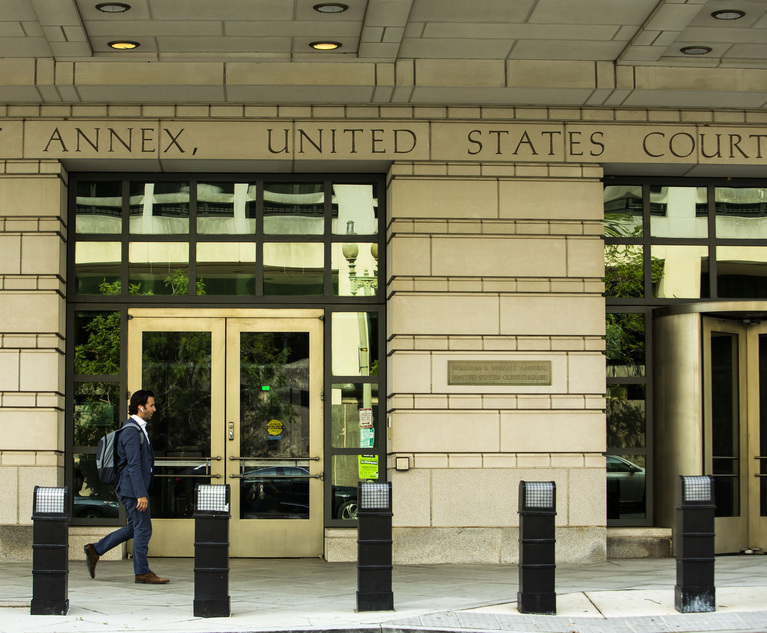 The E. Barrett Prettyman U.S. Courthouse, home of the U.S. Court of Appeals for the District of Columbia Circuit and the U.S. District Court for the District of Columbia. Photo: Diego M. Radzinschi/ALM
The E. Barrett Prettyman U.S. Courthouse, home of the U.S. Court of Appeals for the District of Columbia Circuit and the U.S. District Court for the District of Columbia. Photo: Diego M. Radzinschi/ALM
The legal battle over the abrupt April 2025 dismissal of Todd Harper and Tanya Otsuka from the NCUA Board intensified this week as the plaintiffs filed a forceful reply and opposition to the government’s cross-motion for summary judgment. In newly filed court documents, Harper and Otsuka argued their terminations by President Donald Trump were unlawful, in violation of the NCUA’s founding statute and longstanding precedent protecting independent financial regulators from political interference.
Filed in the U.S. District Court for the District of Columbia on May 19, the plaintiffs’ brief asserted that the 1978 congressional overhaul of the NCUA, transforming it from a single administrator serving “at the pleasure of the President” into a three-member bipartisan board with staggered six-year terms, was explicitly designed to insulate board members from at-will dismissal.
Recommended For You
“There is no other way to read Congress’s adoption of the Humphrey’s Executor structure other than as signifying a clear intent to protect board members,” the brief stated, citing the 1935 Supreme Court case upholding removal protections for Federal Trade Commission commissioners.
Harper and Otsuka claimed the government’s defense relies heavily on a single line of dictum from Collins v. Yellen (2021), which briefly listed the NCUA as lacking removal protections. But the plaintiffs argued that this reference was not debated, lacks legal weight and contradicts both statutory history and the NCUA’s structure.
The plaintiffs also alleged procedural failures. According to Harper’s sworn declaration, the email informing him of his removal was mistakenly sent to the wrong address and only received two days later. Both he and Otsuka argued they were removed without cause and without due process.
Harper further warned that without a quorum, the NCUA is unable to perform essential regulatory functions, including rulemaking, approving certain mergers or managing large credit union liquidations. “Essential actions do not encompass the core functions Congress entrusted the agency,” Harper declared.
The plaintiffs are seeking preliminary and permanent injunctive relief, reinstatement and declaratory judgment. They argued that if the court upholds the removals, it would open the door for similar action across other independent financial agencies, threatening the foundational concept of regulatory independence.
The court, presided over by Judge Amir H. Ali, has set a May 23 deadline for the government’s final reply. A ruling could determine whether Harper and Otsuka return to their seats, and whether the NCUA regains its ability to function as a full federal board.
© Touchpoint Markets, All Rights Reserved. Request academic re-use from www.copyright.com. All other uses, submit a request to [email protected]. For more inforrmation visit Asset & Logo Licensing.







